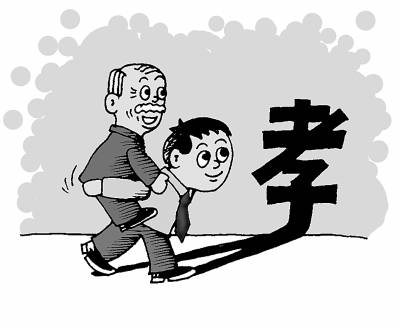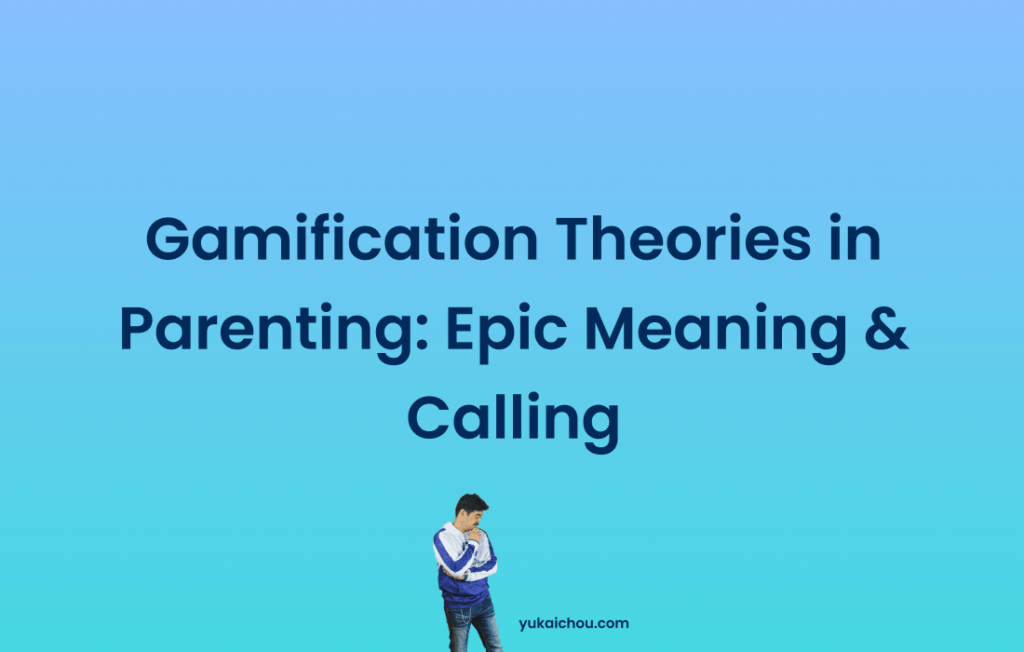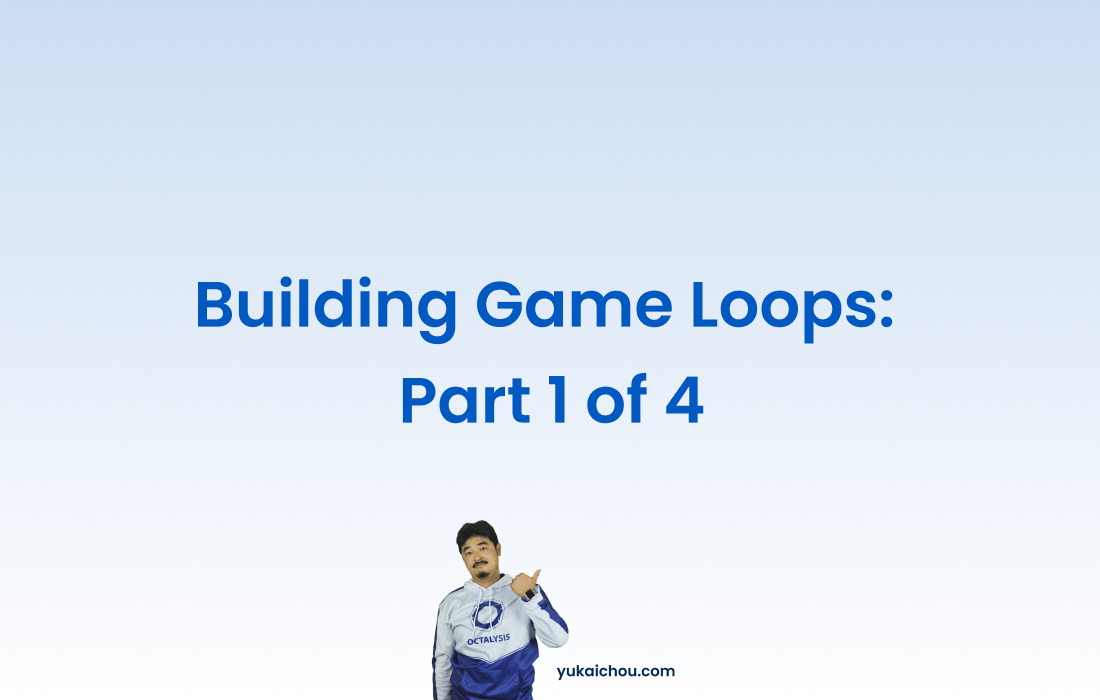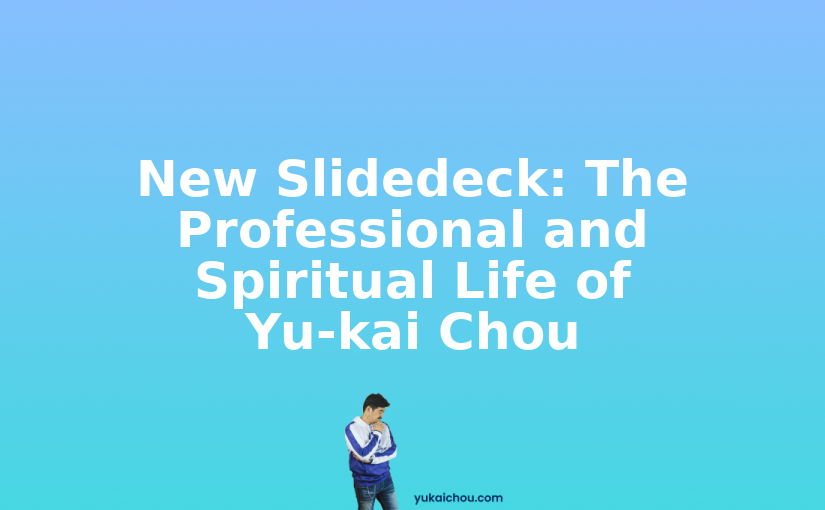
(Below is an unedited manuscript snippet of my book: Actionable Gamification – Beyond Points, Badges, and Leaderboards. If you like this post, you will LOVE my book).
Parenting Gamification: Your Parents are Bigger Than You!
Parenting is generally motivated by two Core Drives in my Gamification Framework Octalysis: Core Drive #2, Development & Accomplishment (reward when the child behaves), as well as Core Drive #8, Loss & Avoidance (punish/ground when the child does not behave).
However, the Chinese culture, along with many other Asian cultures, has figured out how to implement Epic Meaning & Calling into Parenting.
In the Chinese language, there is a word termed “Xiao,” pronounced “Sheeow,” which has no sound English translation, but is a concept that elicits: since your birth, you are in debt to your parents and you own your life and existence to them. As a result, you need to do everything possible to honor them and lift them up.
Many sources translate the word “Xiao” to the term “Filial Piety” – “a virtue of respect for one’s parents and ancestors.”
But it goes way beyond the word “respect.”
Once Chinese children start to comprehend the world, parents will tell them or play them stories where well-known children of “Xiao” in Ancient China fight tigers to protect their parents, warm up their parents mattresses before bedtime, or cut off their own flesh in order to feed their hungry parents. In one story, a 60-year-old man of “Xiao” pretends to play on the ground in a humorous way in order to entertain his 80-year-old parents. (Note: regardless of the tactics to educate such Epic Meaning & Calling, “Xiao” is truly a great virtue that is being lost in a new flat-world of instant gratification and self-centeredness).
Other examples of ? in the “24 Paragons of Filial Piety” include (thanks to Robbert Penner for additional research):
- -a man sells himself into slavery to pay for father’s funeral
- a man tastes his sick father’s stool
- a woman cooks part of her own liver to feed her mother
- an eight-year-old boy attracts mosquitoes to suck his blood so they won’t bother his parents
- a father decides to bury his three-year-old son so he can afford to care for his mother. While digging the hole, he finds treasure and doesn’t have to kill his son.
While some of these true stories are disturbing, it illustrates how important Xiao is as a value within the culture. Of course, parents aren’t just hypocritically manipulation their children. Children see the exact same attitude of their parents towards their grandparents. The children who see their parents treat the grandparents poorly will most likely not buy into the Epic Meaning of Xiao.
In Traditional Ancient Chinese Culture, when one’s parents pass away, he needs to dress in a mourning dress, abstain from all entertainment and sometimes meat, as well as exclude social relationships for three entire years to express his sadness for his parents. This act is called “Shouxiao”, which literally means “guarding Xiao” and was traditionally set to be three years because Confucius stated that it takes three years for us to leave our parents’ arms, and hence it is proper to spend three years mourning for them.
Of course, in today’s modern society, much of the three-year mourning is lost and reduced to days or weeks as a symbolic gesture to honor one’s parents.
And because of this culture of “Xiao,” Asian children grow up feeling that they have to do a lot for their parents – they have to study hard; they have to find get into a good school that their parents can be proud of; they have to support their parents throughout life; they should live with their parents to always be available, and make sure everything is taken care of for their parents throughout life.
In contrast, in Western societies where the concept of “Xiao” is not as prevalent, people still respect their parents immensely, but often once they form their own families, they generally become a lot more disconnected and simply bring their children to grandpa and grandma once or twice a year, instead of constantly making life decisions that are tailored to their parents.
There’s even popular Chinese literature and idioms such as “Bu Xiao Zhi Zi, Tian Di Bu Rong,” which means, “For a son without ‘Xiao,’ there is no space/tolerance for him in heaven or earth.” This means that if you do not have “Xiao,” you are such an epic scumbag you don’t deserve to have ever existed, and both the heaven and the earth are so disgusted by your existence they are spitting you out of their presence.
It is this type of Epic Meaning & Calling that motivates people beyond their self-interest, regardless of what they want for themselves or whether they feel good or not about it.
Even today, if my parents told me I don’t have Xiao because of any behavior, it would crush me emotionally and motivate me towards almost anything to amend it. Just because I understand the nature of the motivation does not mean I am exempt from it. It is something deeply ingrained within me and my values. In similar faith, my parents have never made that statement to me in my entire life, because that would be one of the greatest insults a parent can give. It is that serious and tangible when it comes to this type of motivation.








